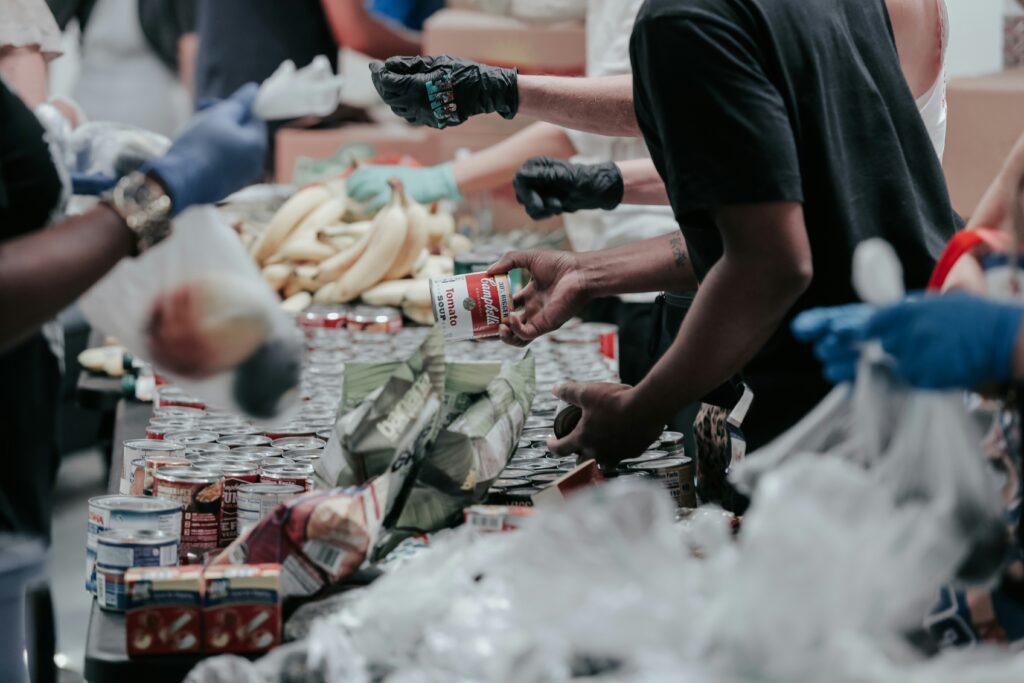Ramadan Provides an Opportunity for Continued Action
By Malak Kassem
Mar/Apr 25

According to a 2022 report by the New York City Mayor’s Office of Food Policy, about 1.2 million out of 8.4 million New York residents are food insecure in America’s largest city. The New York City Council confirms that the Supplemental Nutrition Assistance Program (SNAP) provides assistance to more than 1 million New York City households every year. While SNAP supports many food insecure households, nonprofit organizations are likewise essential in providing support to vulnerable communities across the city. They are safe havens for people to seek resources, advice and direction. According to NGO Base, a source for information about NGOs throughout the world, there are 245 registered Islamic nonprofits in the State of New York. However, many registered on this site are mosques, a fact which fails to account for nonprofits that are established by the Muslim community but are not necessarily Islamic institutions.
According to a study by the Arab-American Family Support Center (AAFSC) , only 38% of surveyed food pantries in New York City offered halal options. According to a PBS report, more than 185,000 asylum seekers have entered the country since 2022, with many arriving from African Muslim-majority nations such as Senegal and Mauritania. As halal food remains inaccessible in most food pantries, traditional community support systems, such as mosques, are utilized year-round, but become especially exhausted during Ramadan when Muslims need regular access to halal food in order to break their fast and sustain their nutrients every day throughout the holy month.
“The prices in New York City have skyrocketed so much that it’s very hard to afford the bare minimum,” said Zahra Omairat, the communications coordinator at Brooklyn’s Asiyah Women’s Center, an organization that supports Muslim women and children who have survived domestic violence. “But we try our best to alleviate some of that off their shoulders. New York City’s shelter system is not very accommodating for Muslim women, especially when it comes to halal food.” Asiyah helps alleviate food insecurity by helping clients navigate food and cash assistance programs such as SNAP and Electronic Benefits Transfer (EBT) cards.
Omairat explained that oftentimes, government assistance isn’t enough. “Some women get $100 a month, which is a low amount of money for someone with multiple kids, or even just for herself,” she said.
Asiyah also collaborates with local grocery stores to donate items such as chicken, produce, bread and rice for distribution. Her team reached hundreds of clients last Ramadan. They also plan to host weekly iftars for Ramadans in the future.
Shahana Hanif, representative of Brooklyn’s District 39 and the first Muslim and Bangladeshi woman elected to the New York City Council, campaigned during the Covid-19 lockdown when her neighborhood of Kenington was hit especially hard. “Every supermarket shut down. It was very overwhelming,” Hanif said. “Immediately, my sister and I put together a fund relief for undocumented Muslims in particular because a lot of the food pantries were not giving additional funding to people who literally didn’t have anything.”
Many community members in Hanif’s district struggle to pay rent, land a decent-paying job, or afford basic amenities like childcare and even food. “It is imperative for me as an elected leader to ensure that the needs of our communities are met. And the needs of our communities are not unique,” she said.
In partnership with local organizations such as the Arab-American Support Center and Muslims Giving Back, Hanif and her sister created a food survival fund so that families won’t have to worry about putting food on the table and can instead allocate their money to other necessities such as rent.
“This is our community,” Hanif said. “There is no shame asking for food or being on a line for food. We will work together to make sure that everyone is fed.”
During Ramadan, Hanif’s office expands food distribution, surveying local residents about what they need for holiday preparations. They also hold an annual iftar dinner at Avenue C Plaza in partnership with the group Arts & Democracy. This is Hanif’s favorite Ramadan event. Her office purchases food from local halal restaurants and holds performances by local artists before taraweeh prayer.
Amal Rady, the community manager at Malikah in Astoria’s Little Egypt, runs a halal food fridge at a local mosque year round alongside Wellness on Wheels. Malikah is dedicated to advocating against gender and hate-based violence through self-defense training, healing justice workshops, economic empowerment programs and community organizing. Like Asiyah and Councilmember Hanif, Malikah is involved in combating food insecurity. “We are rooted in the belief that everyone deserves to live with dignity and safety and have access to the resources they need to thrive,” Rady said.
Most of Malikah’s clients are Arabs, Muslims, asylum seekers, and/or refugees. “There are a lot of things that are swept under the rug,” Rady said. “[Arabs and Muslims] don’t have access to resources or benefits that other communities may be able to access.” These benefits include government assistance.
This Ramadan, Malikah is partnering with Islamic Relief USA to host a food truck outside their office twice a week to provide hot meals for iftar. The organization will also hold an iftar dinner at the Museum of Moving Image (MoMI) where the team expects to break their fast with about 200 asylum seekers.
Malak Kassem, a journalism student at St. John’s University, has interned with Press Pass NYC and United Planet. She has written for The Torch, Prism Reports, and Gargoyle Magazine.
